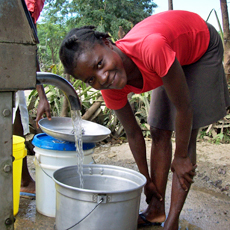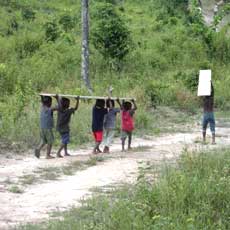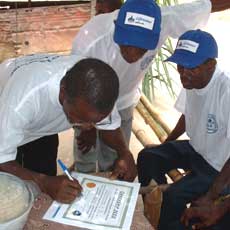Village Participation is Essential
In a normal marketplace, money must be exchanged before goods or services are provided. On the other hand, we have learned that if water wells are provided for free, there is very little village ownership and the pumps will not be maintained and will break down.
For projects to be successful in the long-term, community members must be willing to work together, share food and shelter with the Lifewater team while they are on-site, and give time, energy, finances and other resources towards the project.
Villagers perform maintenance, raise repair funds, and establish rules for issues such a:
- Who will be the official Well Caretaker
- When the pump should be locked and when water can be drawn (to guard against over-use and breakdown)
- How users must contribute towards required pump repair work

Lifewater works with community leaders to develop a Water Supply Agreement (see photo below). Each project is customized to address local needs and capacity.
Each community designates a Well Caretaker and/or Washroom Caretaker who is trained by Lifewater afor the well's or washroom's daily operation.
For each cluster of water projects, a repair technician is trained. Required tools are left with the local village chief.
Plaques showing sponsors' names normally are not attached to wells because this diminishes village ownership of projects and prolongs dependency on outside help.
 |
 |
Children at a Liberian orphanage carrying materials to help drill a well Community leaders signing their Water Supply Agreement
Read more about our strategy

